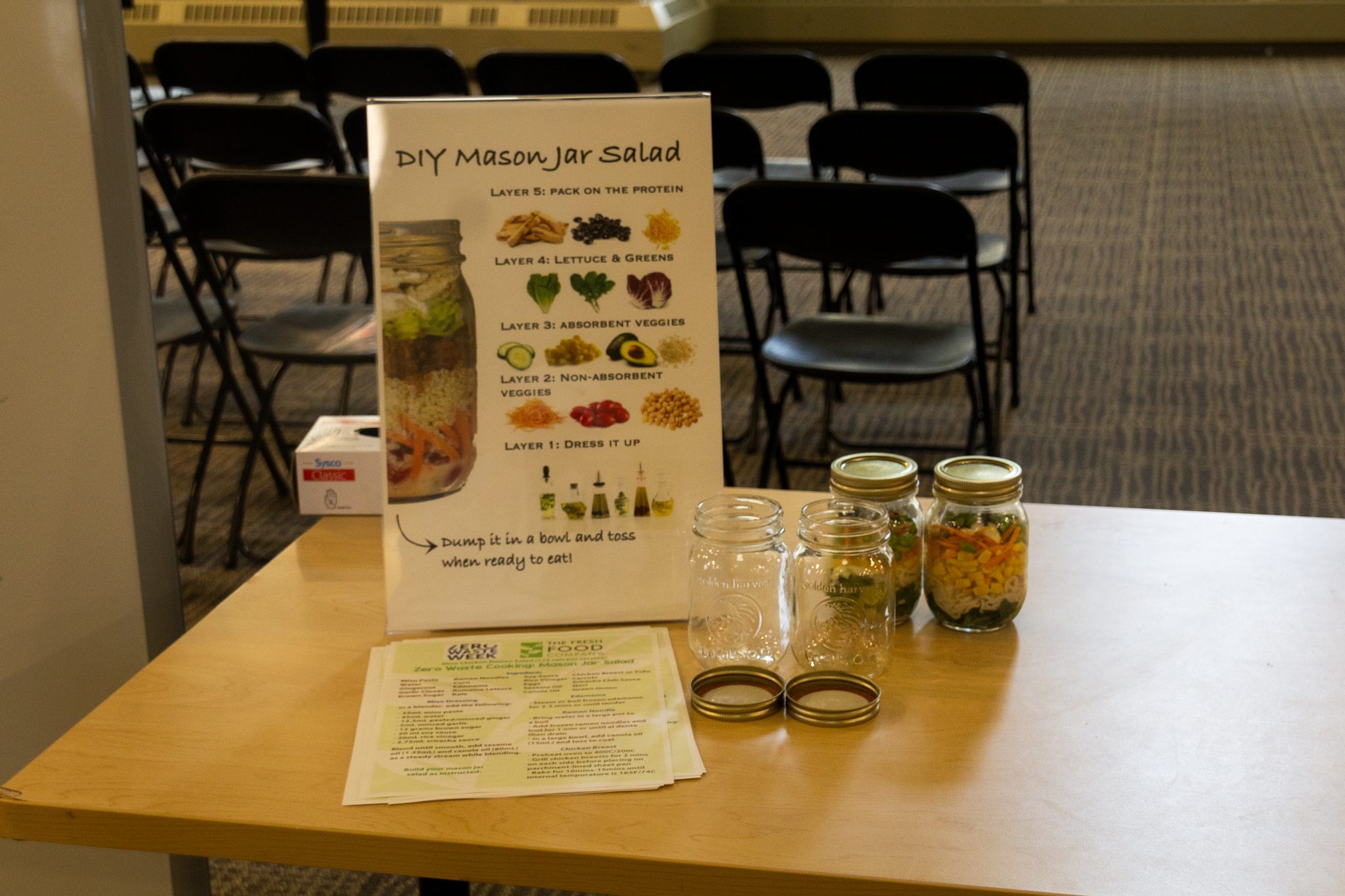Zero Waste Week seeks to educate students on decreasing refuse generation and increasing sustainability


Monday, Mar. 4 signified the start of Laurier’s first ever Zero Waste Week, hosted by the Sustainability Office at Laurier, that will run until March 8.
The week is full of events that hope to help decrease the waste that patrons of Laurier produce with a short-term blitz of activities that students and faculty can continue to practice in the long term.
“It kind of came out of just the general increased interest in zero waste, it seems to be kind of an insta-popular thing these days; National Geographic did a big issue on plastics this summer, so we started listening to the trends of what students are interested in,” said Tyler Plante, outreach and program coordinator for Laurier’s Sustainability Office.
“Waste reduction and zero-waste targets have always been part of our office’s mandate. Over the past year we’ve been developing our new five-year action plan, and we have waste reduction and diversion rate goals in that already, so it’s things that we’ve been working on.”
Within this past year Laurier’s Sustainability Office has run initiatives through residence life and running workshops to help reduce waste and divert from landfills, but a high-profile event like Zero Waste Week aims to gather the attention of everyone at Laurier.
“With a big, public-facing event like this, we just kind of wanted to double down and get our office more visibility, for students to know that we’re a resource here, and as we were looking at our programming for this upcoming year, we thought we should try to do one big thing engagement-wise and this was the natural choice,” Plante said.
The calendar of events for the week includes bin blitzes aimed at correctly sorting waste, reusable mug giveaways to reduce coffee cups going to landfills, clothing swaps and even a zero-waste cooking class.
The aim of these events is not only to promote a more sustainable future at Laurier, already a LEED certified green campus, but for individuals to choose more sustainable options in their day to day lifestyles.
“When we talked about doing a week-long series around waste, we looked to our peers, we looked to other resources we have, and we kind of came up with this long list of small, medium and large style events that we could do,” Plante said.
“We wanted to make sure there is something each day that is manageable but also has enough of a reach that people are going to see what’s going on, and ideally, the goal is that we start changing behaviours.”
“Those types of things are kind of the policy and infrastructure level changes that will allow students to see when they’re making daily decisions, they’ll see that information, but it’s also easier for people to make those choices and will allow for behaviour change.”
In 2018, Laurier produced 1,660 tonnes of waste and diverted 60 per cent of that waste out of landfills.
Still, the 40 per cent that did end up in landfills could have been reduced if correctly sorted and disposed of, and events like Zero Waste Week aim to get the number lower.
“We hope that by having a greater exposure and people aware of our office, people will then use us as a resource, we’re about to publish a new layer on the campus map that will all be sustainability services, so that will provide us more accessibility as well,” Plante said.
“Ideally, we run something like this for a longer period of time so we can start engraining behaviours, and we’ve been talking to some campus partners like food services and residence staff about doing longer programming and promotions.”
Participants in the week of events can track their progress online and will be entered into the grand prize draw to win a zero-waste three course meal at Veritas, courtesy of the Sustainability Office, taking place on Friday.
“This September, food services increased the reusable mug discount from 10 cents to 40 cents, and that was in conversations with our office. We’re starting to push that needle a little further, they’re installing new recycling stations in the food courts,” Plante said.
“Those types of things are kind of the policy and infrastructure level changes that will allow students to see when they’re making daily decisions, they’ll see that information, but it’s also easier for people to make those choices and will allow for behaviour change.”


